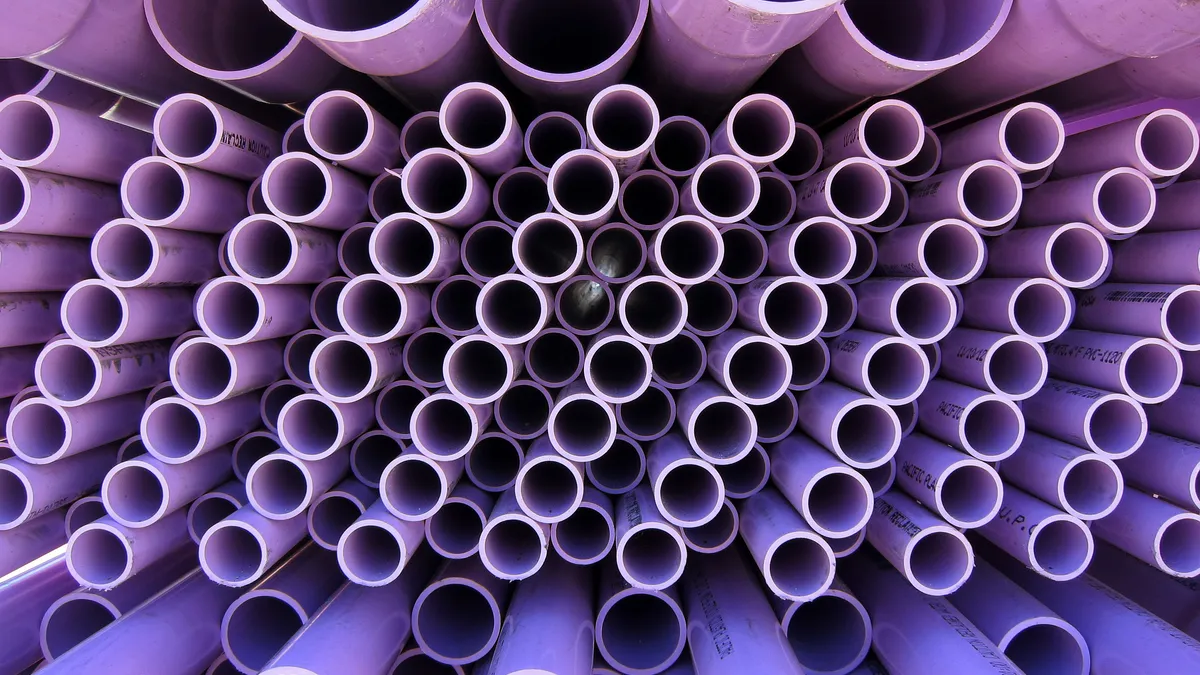Dive Brief:
- The Uni-Bell PVC Pipe Association (PVCPA) released what it calls "the first comprehensive environmental and performance review of water and sewer pipes in North America," to look at the long-term sustainability of the material commonly used in drinking water and sewer pipes.
- The association examined different materials, including PVC and concrete, to test their durability and sustainability over a 100-year period.
- Through the research done with Sustainable Solutions Corporation (SSC), the PVCPA claims PVC pipe is the most durable, least likely to corrode and least likely to see decreased performance, with an operating life of more than 100 years.
Dive Insight:
City infrastructure needs for water and sewer pipes are massive. The American Society of Civil Engineers (ASCE) 2017 Infrastructure Report Card gives U.S. water pipes a D rating and said there is $1 trillion needed in upgrades. For sewers, the ASCE gave the wastewater system a D+ and put a $271 billion price tag on improvements over the next 25 years.
While it is a bit skeptical that a study funded by a PVC-focused association found PVC to be the most durable piping for water systems, the defense is considerable, especially in a financial sense. In addition to ASCE, PVCPA also notes that $1 trillion is needed to improve the nation's infrastructure, and said PVC can be 70% less expensive than other pipe material. For cities looking to stay within budgets while maintaining eco-friendly operations, PVC could be an affordable investment.
When water infrastructure isn't planned well or handled smartly, disaster, like the water crisis in Flint, MI, can strike. Whether planning new infrastructure or repairing existing infrastructure, city planners have to be critical and careful to ensure the safety of their residents.











